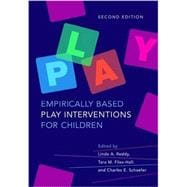This book is a comprehensive reference for clinicians and researchers that provides well-established, theoretically based, and flexible interventions—both directive and nondirective—to meet the growing and diverse needs of today’s children and families. This updated edition presents new research on play therapy treatment models and agents that have shown significant promise in treating a variety of child disorders—including autism. Authors also consider implementation issues arising from new mental health policies and initiatives, including integrated health care systems and the Affordable Care Act.
Each chapter is carefully organized to include the theoretical basis and objectives of various innovative play interventions, key treatment ingredients and processes, and recommendations for replication and transportability to other settings. Detailed vignettes illustrate how these interventions can be used in clinical practice.








